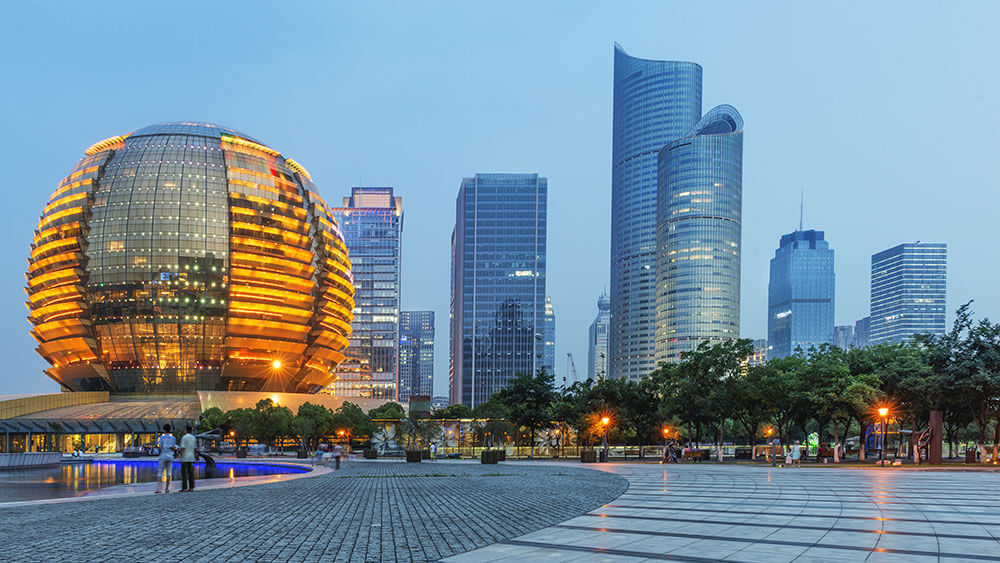
Alibaba’s Flyzoo hotel has opened in Hangzhou city. (Adobe Stock photo)
As a new generation of business travelers and conference attendees searches for accommodations, hoteliers have been focused on delivering new digital lobby experiences, patenting new room models, and making transit to and from the airport more convenient. To understand the hotel of the future, though, you may not need to turn to any traditional names in the hospitality business or any of those talked-about sharing-economy options. Instead, you can look at Alibaba. The Chinese e-commerce powerhouse unveiled the Alibaba Future Hotel — also known as the Flyzoo Hotel — in Hangzhou last week, and the guest experience sounds like a scene from a sci-fi movie.
“Robots can be found everywhere in the hotel,” a release from the company states, “and they would guide the guests by providing recorded voice messages and accompany them during their stay.”
Room keys? There’s no need for those fossils, and there is no need for any kind of app to gain entry. Instead, a facial recognition system verifies a guest’s identity and grants access to a room. Alibaba’s release trumpets that “guests can check into the hotel without talking to anyone.” Wang Qun, the CEO of the property, believes that the artificial intelligence-powered system will reduce labor needs by around half compared with a property that relies on all humans (there will still be actual people who clean the rooms). The system will also reduce the need for guests to do much more than speak once inside their rooms. Turning on the lights and adjusting the temperature can all be done via voice commands.
The rooms start at 1,399 Chinese yuan, the equivalent of around $200 U.S. The Nikkei Asian Review does not expect to see Alibaba opening loads of new properties, though. “Alibaba’s aim does not appear to be to launch itself into the hotel business,” Coco Liu, a staff writer at the publication, wrote. “Instead, the online retailer may be hoping to use the new hotel as a showcase for the technologies it hopes will drive sales beyond online retailing.”
Regardless of Alibaba’s aims, the company is already nurturing strong roots in the global hospitality industry. Marriott announced a new partnership with the company in 2017. The move positioned the biggest name in the traditional hotel business to reap the benefits of appealing to the rapidly growing Chinese travel market. Marriott has already updated payment systems to accept Alipay — Alibaba’s wallet-free digital payment option — at many hotels in China, and the hotelier indicated that “further expansion [is] expected around the world” when the venture was first announced.
When will Alibaba’s robots start showing up at U.S. properties? I’m guessing sooner than later. Marriott has already experimented with non-human assistants at the Hotel EMC2 in Chicago. I’m not quite ready for robots to arrive with my room service, and I tend to enjoy actually talking to someone when I arrive at a hotel. However, I may be too old-school. A survey of 6,000 travelers in Europe, Asia, and North America conducted by Travelzoo revealed that nearly two-thirds of respondents think that AI should find a home in the travel industry in the next five years. The study showed that people believe robots are more efficient, better at dealing with different languages, and better prepared to use data than humans.
So, I guess it’s true. The robots really are coming, and they’ll help greet the guests in your room block soon.
